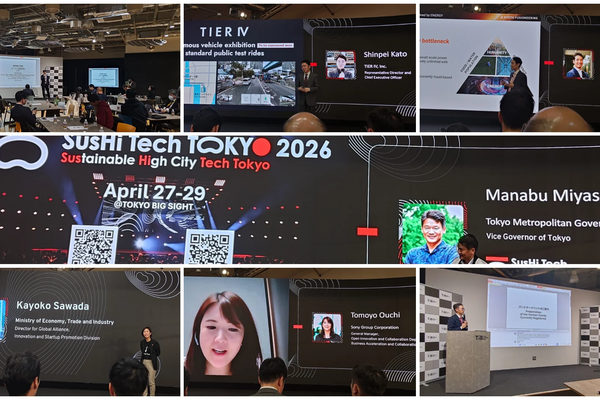In early July 2025, when we exhibited at the 17th CONTENT TOKYO trade show, a visitor showed deep interest in Kafkai and asked, "Do you also support LLMO?"
While this may seem like a simple request with a straightforward Yes or No answer, it's not that simple. It's actually quite complex. That single question became the theme of this blog post.

The Wild, Wild West
First of all, the knowledge and best practices surrounding AI have not yet been established. Like the American frontier era, everyone has a strong desire to solidify their thoughts and ideas, and the confusion arises from wanting to take leadership in this new field.
For example:
- GEO (Generative Engine Optimization)
- LLMO (Large Language Model Optimization)
- AEO (Answer Engine Optimization)
You've probably heard of these. In fact, they all essentially refer to the same thing. Each means getting large language models (in other words, AI) to respond as you intend. It reminds me of the late 1990s when we first learned to manipu... (ehem) persuade search engine results to our advantage, and the term "SEO" was first used.
AI is the Child of Search Engines
However, we tend to get caught up in this wave of new terminology and overlook a fundamental fact: AI tools reference search engines.
Taking ChatGPT as an example, when providing real-time information, it actually uses Bing's search results. Similarly, Google's Gemini and AI Overview are also based on Google's search index. In other words, most of the information that AI "knows" comes from content that search engines have already evaluated and ranked. The ability to organize vast amounts of information on the internet, categorize it, interpret user intent from search behavior, and display relevant information comes from the search technology we've developed over the years. If we simply pass this information to large language models without context, the models won't understand the meaning and it won't be useful information.
So what does all of this mean? It means that if you don't succeed with SEO, you won't succeed with LLMO either.
The Ambiguity of "Support"
When customers ask us "Do you support LLMO?", the first thing we felt was the ambiguity of the word "support."
The same applies to SEO. When asked "Do you support SEO?", there's no feature that guarantees a #1 ranking simply by checking a checkbox. Both SEO and LLMO are the result of strategic approaches and continuous improvement.
LLMO is an Approach, Not a Feature
LLMO is not a setting that you can simply "turn on" to complete. It's a set of best practices - a methodology for how to create content, how to structure it, and how to enhance information credibility.
"LLMO Elements" Already Implemented in Kafkai
So taking that into account, Kafkai has already implemented many LLMO best practices. These were originally developed as SEO best practices, but have proven to be effective for LLMO as well.
Structured Content Generation
Automatic FAQ Generation AI easily understands question-and-answer pairs, making them easy to reference when tools like ChatGPT cite them.
Bullet Points and Numbered Lists By organizing information hierarchically, LLMs can accurately interpret content and cite it partially.
Automatic Integration of Semantic Related Terms
Kafkai's multiple keyword feature isn't just for SEO. This is a function that automatically includes co-occurring words - terms that are statistically often used together when discussing a particular topic.
For example, when writing about "content marketing," related terms like "SEO," "branding," and "lead generation" are naturally included. This allows LLMs to understand the context of that content more accurately.
Automatic Citation Feature
Kafkai's automatic citation feature (Growth plan and above) is exactly what LLMO best practices are about. Citations from reliable sources are an important factor for LLMs to evaluate content as a "quotable information source."
Ensuring Uniqueness Through Competitive Analysis
Kafkai's unique "Related" strategy and 4C strategy support the generation of primary information. Unique insights based on competitive analysis increase the likelihood of being cited by LLMs as valuable information that can't be found elsewhere.
What We Learned in Seoul, Korea: Branding is Essential in the AI Era!
While I had understood the importance of branding in SEO before, learning about GEO at the digital marketing summit in Seoul made me realize that its value has increased even more in the AI era.
The latest AI technology, LLMs, seem to judge "which brands are trustworthy" from information on the web, making it essential not only to optimize content but also to enhance brand recognition and build credibility.
At Kafkai, we're currently working on developing branding enhancement features to respond to this change. We're creating a system that reflects the personality and expertise of our customers' companies in articles, creating a consistent brand image. We expect this will help our customers' businesses gain more recognition and deepen trust relationships with customers.
Setting Realistic Expectations
Here's an important caveat: Since AI mentions are based on statistical predictions, they don't guarantee citations or coverage.
LLMs are statistical machines that "probabilistically predict the next word." Therefore:
- The same question may sometimes receive different answers
- Accurate measurement of citation frequency is difficult
- Methods for quantitative evaluation of effectiveness haven't been established as industry standards yet
In other words, LLMO efforts are about "creating an environment conducive to citations," not promising guaranteed citations.
LLMO as an Extension of SEO
In conclusion, LLMO isn't an entirely new field but rather a natural evolution of SEO. In fact, when I took the SEO certification exam from AJSA (All Japan SEO Association), I was able to confirm again that the basic principles of SEO remain important today.
Characteristics of excellent SEO content:
- High reliability and authority
- Structured information
- Alignment with user search intent
- Proper citations and sources
These are all characteristics that LLMs prefer as well.
The Value Kafkai Provides
By using Kafkai:
- ✅ SEO-optimized content is automatically generated
- ✅ Structures that LLMs can easily understand (FAQ, bullet points, citations) are included
- ✅ Uniqueness through competitive analysis is ensured
- ✅ Branding features (in development) enable further enhancement
Summary: New Words, Old Wisdom
It's important not to be misled by the new term LLMO, but to understand its essence. Ultimately, it's no different from the basic principles of SEO: creating high-quality content, structuring it properly, and ensuring credibility. You've probably heard the term "E-E-A-T" frequently - that's exactly what this is about.
So, returning to the original visitor's question "Do you support LLMO?", the conclusion is: "Yes, Kafkai has already implemented the SEO best practices that form the foundation of LLMO."
However, search optimization in the AI era isn't just a matter of technique. It's about building credibility as a brand and continuously providing valuable information. And that may be what truly means "adapting to the AI era."
If you'd like to learn more about the Kafkai features mentioned in this article, please try our free strategic analysis.
You might also be interested in these too





